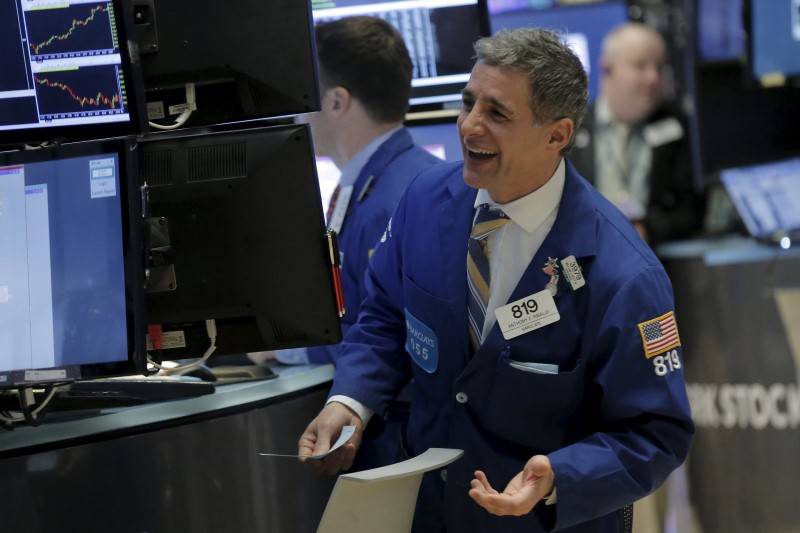By David Gaffen
(Reuters) - Wall Street's top banks say the Fed is likely to raise rates by March, but subsequent rate increases will be slow, particularly if China devalues its currency at a rapid rate in 2016.
A Reuters poll of the primary dealers that deal directly with the Federal Reserve shows that 13 of 18 that responded expect a rate increase by the March meeting of the Federal Open Market Committee. That is similar to the results from a poll immediately following the December rate increase, which showed 13 of 19 believed the Fed would raise rates in March.
The median expectation for the federal funds rate by the end of 2016 was a range of 1 to 1.25 percent, same as in early December, the last time Reuters asked this question.
The Fed raised rates for the first time in nine years last month. Of late, several Fed officials, including Vice Chair Stanley Fischer, have said they can still see a number of interest-rate increases by the end of the year.
The Fed's most recent forecasts project four interest-rate increases by the close of 2016.
Wall Street's outlook is different. The primary dealers see three more interest-rate hikes, while trading in the federal funds rate suggests just two more bumps in the rate.
For poll results in full, see [nL1N14S1J6].
The wild card, however, is China. Nine primary dealers said there was at least some possibility that the Fed would have to slow its rate-hiking pace if the yuan depreciates rapidly, affecting global trade. The country has let its currency fall in recent days as it struggles to make its exports more competitive and as it responds to weakened demand.
The onshore yuan has dropped 6 percent against the dollar since the middle of August. Lately its decline has accelerated, and markets worldwide have been caught in a downdraft, in part a response to insecurity surrounding the actions of China's regulators to combat a selloff in their stock market and fears of capital flight accelerating.
"A rapid appreciation (of the dollar), if sustained, could cause too much uncertainty over the Fed's outlook for growth and inflation and would likely result in a shallower path for policy than the Fed previously envisioned," said Ellen Zentner, chief U.S. economist at Morgan Stanley (N:MS).
The U.S. equity market is set to close out one of the worst opening weeks of any year in its history, but already some strategists are warning that the stock selloff has gone too far. Friday's release of December non-farm payrolls figures showed growth of 292,000 jobs for the month, suggesting ongoing strength in the labor market.

Dealers, by and large, still do not expect the Fed to start reducing its balance sheet before the end of the year. Of the 17 that responded, the median expectation was that it would be 12 months before the Fed will begin paring its balance sheet.